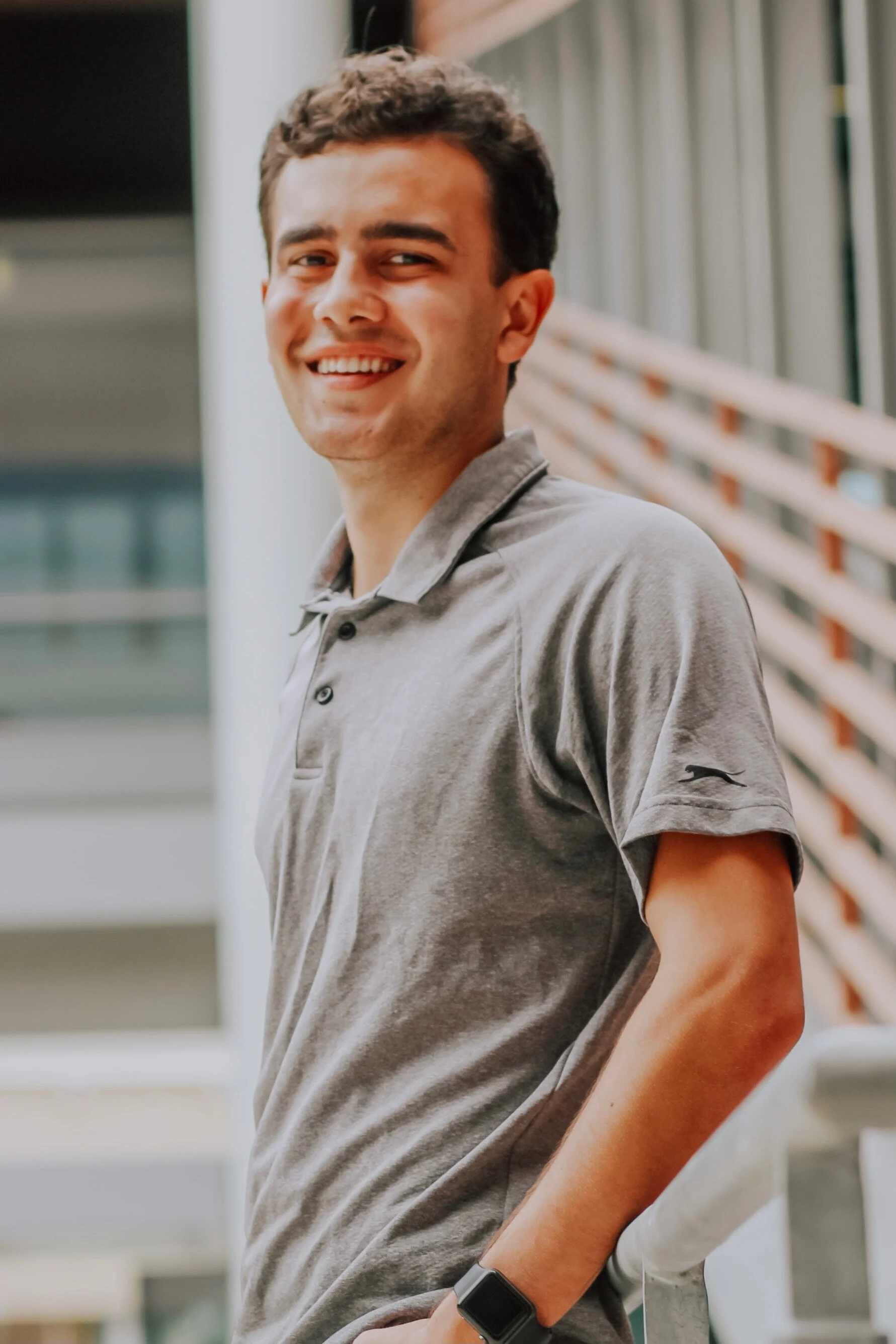Blake B.
Photography by Brooklyn Yager Photography
If you're reading this, you are in control.
There are times in life where you are thrown a curveball and it knocks you down. Maybe it's a breakup, the death of a relative, or a rejection letter. You may not be able to control some of these things from occurring, but you can control how you respond. My curveball was growing up without a father. He is still alive, but it has always felt like he was dead.
As a kid, it's hard to understand why. I knew I had a Dad, but where was he? I never fully grasped why I never saw him, even though my parents were divorced. As a young adult, I eventually learned that he was bipolar and an alcoholic, but never received help. Even with this gained knowledge, I still struggled. When I would go over to my friends' houses and see their fathers, it was a constant reminder of how mine wasn't around. Growing up playing sports, it was tough to see the other kid's Dads cheering them on, or even having them as a coach. Through this, I developed anxiety and felt a sense of emptiness within me.
There was a time where this emptiness felt like it would never go away. Until one day, my perspective changed. I focused on the things I was fortunate enough to have. For example, my amazing mother, who worked tirelessly to raise me to be the best person I could be, and the extensive support network I had around me. I learned to come to terms with my family structure and filled the void by finding others to serve as a father figure in my life. These included my grandfather, uncles, friend's parents, and coaches. Sure, none of them were my biological father, but the love and support I received from them were able to help heal the wound.
My anxiety, on the other hand, was a different story. Nobody knew I was struggling. As someone who was the captain of sports teams, leader of the student section, student body VP, and on homecoming court, you would never guess that I struggled with mental illness. The truth is that it can happen to anyone. My mind was constantly flooded with "What-Ifs" and irrational thoughts. I was embarrassed. In a society where a male's unwavering masculinity has been historically valued, I was afraid to admit my weaknesses. I didn't want my struggles to change the way my peers thought about me. As a result, I bottled everything up and continued to wear a smile as a facade.
Let me be the first to tell you that your anxiety is lying to you. It is okay to be vulnerable. It took a lot of inner strength, but finally deciding to open up about my struggles and seek help is the best decision I could've made. I just wish I realized it sooner. The amount of support I received from family, friends, and my community was truly inspiring, and I hope that everyone who is currently struggling can experience the same support. There is an abundance of resources available for those suffering from mental illnesses in the UofSC community and I encourage everyone to take advantage of them. Hopefully, my letter and IfYou'reReadingThis can serve as a catalyst.
If you're reading this, you are in control. Nobody goes through life unscathed. However, if you lean into your vulnerability, it might become your greatest strength. Knock the next curveball out of the park. If you get knocked down again, this community will always be here for you. You don't have to suffer in silence.
Blake B., University of South Carolina
Connect With Us
To follow IfYoureReadingThis at UofSC on Instagram, get in touch with our chapter, and learn about more resources available to UofSC students, visit our chapter’s homepage.
AUTHOR CONTACT
This author has opted to allow readers who resonate with their story to contact them. If you would like to speak to the author of this letter about their experience, please use the form below.

